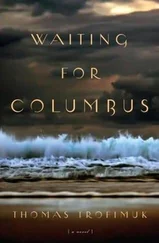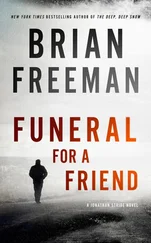Manteli, Manteli,
but I don’t move, I don’t allow myself to be interrupted. Shh, replies Kiki’s voice in English, let him sleep (even though I’m not sleeping), and Bella’s sounds mingle with the hiss of the gas stove and the sizzling fat, with the clacking of the knife and the stirring of the spoons, with the onion and butter vapors, with Wordsworth in the oven and Naish in the soup, with the outboards on the lake and the pigeons on the roof, with the soft and ever softer voices of the two women in Svensson’s house, in Svensson’s book, in Svensson’s life.
our professionalism
Elisabeth and I had arranged to meet in the late afternoon at Café Paris near the Hamburg city hall marketplace, it must have been in the autumn of 2004. There was something to celebrate, she’d said on the phone. We ordered Ricard and merguez frites , then she informed me that I could begin in the editorial department, though I’d have to be more readily available than I’d been up to that point (Elisabeth doesn’t hesitate). In the winter of 2003 I’d offered a feature and two profiles to Elisabeth’s department, all three had been bought and printed (“Michael Moore and Peter Krieg: Didactic Montage in Documentary Film” the editors turned into “Michael Moore’s Krieg”). That isn’t going to work, I said, pouring water into Elisabeth’s anise liqueur, Professor Jansen is demanding the exact same thing for my dissertation, on top of that there’s the work in the witch archive and at GEO . The waiter placed the merguez between us. Here too Elisabeth pinned a strand of her hair back from her forehead, this might be the chance of your life, Daniel. She had even been able to negotiate a steady salary. As an ethnologist, after all, I couldn’t necessarily expect always to earn enough money to afford life in Central Europe. Elisabeth laughed, I knocked back the Ricard. Or did I want to go to Tanzania to do field research like Hornberg? Elisabeth licked the grease off her slender fingers and ordered more wine, we ate, I reflected, we drank. And here was the best part, she added: she herself would be my direct superior, wouldn’t that just be crazy, Mandelkern? The momentary reflex to have to reject her offer (the crumpled-up napkin on Elisabeth’s plate a mushroom cloud). I have only the last third of my dissertation left to write and can definitely imagine staying at the university, I said (Jansen had already hinted at the possibility several times). Elisabeth said that I could always imagine lots of things, she’d relieve me of the decision for now. You can’t eat possibilities, Mandelkern, eventualities aren’t enough to fill us up! The way she imagined our working together, we could connect work and private life, our marriage could be a symbiosis.
my dissertation
Elisabeth and I came to an agreement that same night on my regular freelance position in her department (we always come to an agreement). Not without a twinge of melancholy I quit my glossarist job, I cleared my desk in the witch archive, and explained the new situation to Professor Jansen. The main thing, he urged me in his office in the Museum of Ethnology, is that you don’t hesitate too long, Daniel. In 2006 I’m retiring, and by then we should have put your project behind us. Immediately after the conversation I rode my bike to Elisabeth’s office and from there took the train directly to Munich and Berlin and back to Hamburg, jumping right into writing a story about suicides in opera houses and theaters. During the first months I read my ethnological essays in train compartments, cafés, and airport waiting areas and worked on my dissertation on weekends. When Jansen asked me about new pages at our occasional lunches together, I strung him along (he read my articles in the newspaper and knew that my explanations were excuses). Then I wrote him a letter by hand and requested a break, the balancing act between journalistic and academic writing had temporarily become an unproductive situation. In the everyday routine of newspaper reporting, though, there were always new opportunities for shorter field studies, I wrote, so I would by no means lose sight of ethnology and my topic. Therefore, I would ask him not to write me off. I read the letter to Elisabeth before I sent it. Strangeness, she laughed, really is your specialty, Mandelkern.
obbedienza cieca
It’s the swan’s singing that finally makes me look up from the notebook (it follows Macumba like a memory). The boy is kneeling in his life vest in the stern, Svensson is steering the boat with one hand. Lua only comes into view when Macumba has already almost arrived at the dock, he’s lying stretched out on the bench, the blanket under his head and another under his body. When Tuuli emerges from the house, the two of them have disembarked and the boy runs to her from the dock, the yellow fishing rod in his hands. Lua is lying on the bench as if in a deep sleep. Svensson puts the light blue bucket down on the dock and rolls up his shirtsleeves. He reaches into the bucket, suddenly there’s spraying and wriggling. Samy jumps up and hides behind Tuuli’s legs. When Svensson extracts his arms, he’s holding a fish in his outstretched arms, Tuuli claps her hands and hugs Samy. Svensson holds the animal in the air by its tail and pats Samy on the shoulder. Kiki! he calls. Mandelkern! And Tuuli, too, turns toward the house, she waves and points to the fish. Manteli , she calls, filetto di persico! Svensson rocks the motionless fish in his arms like a baby. For a brief moment the three of them are a family coming home (father, mother, child, and dog). But then Svensson jumps back onto the boat to Lua, the three-legged, the miserable, the faithful dog ( obbedienza cieca , the waitress in the Bar del Porto called his faithfulness). I close the notebook and climb down the rickety outside staircase (I will stay one more night).
The Story of Leo and the Notmuch
Lua is lying in his spot again, he’s lying on the blanket in the grass as if he were asleep. Svensson and Kiki on one side, Tuuli and I on the other, we lifted the dog’s body, the blue blanket between us a jumping-sheet. Tuuli is smoking absently and watching the dog breathe, but even from up close the rising and sinking can only be surmised (she doesn’t touch me). Why does Lua have to die? asks the boy, and begins to cry just as suddenly as he broke out in cheers a short while ago. Svensson just barely manages to deter the little doctor from another examination with the chair-leg stethoscope, he puts him promptly on his shoulders (Svensson fears the diagnosis). Tuuli carries the bucket with the fish into the house. There’s still a lot to do, says Kiki, at eight it will be time (it looks like a good-bye, it looks like tears). Svensson takes a stroll around the property with the boy on his shoulders, I follow them. We feed the hen, we pick a few tomatoes and some sage, we look for eggs in the footwell of the Fiat. Svensson asks the boy whether he knows the story of Leo and Fips and the Notmuch. Yes, says the boy, do you want to read to me? All right, says Svensson, all right. Is Manteli coming too? Of course he’s coming, says Svensson, slapping me on the shoulder. After all, that story is the reason you’re here, right? He slams the doors of the Fiat (to protect against the fox). We walk through the high grass and the flowers and leaves toward the house. The women will have gutted the fish already, I think, they’ll still want to spare the boy (everything is passing away: the dog, the fish, the oleander).
Elisabeth and I
In my head this image remains: on a Monday morning in May Elisabeth and I are standing in the hallway of the Bismarckstrasse apartment when the telephone rings (the early stripes of sunlight on the floor). We’re about to set off for work, I’m standing next to her with my shoulder bag and a sack of empty bottles. She says her name, then doesn’t say anything for a long time, finally she says thank you and hangs up (the soft and incomprehensible voice from the receiver). She leans her head on my neck and closes her eyes, everything’s all right, she says, that was the gynecologist’s office. Elisabeth and I in the white frame of the mirror (for a few seconds the possibility of a family). We have to go now, Mandelkern, she then says, or else we’ll be late, or else I’ll have to reprimand you.
Читать дальше












